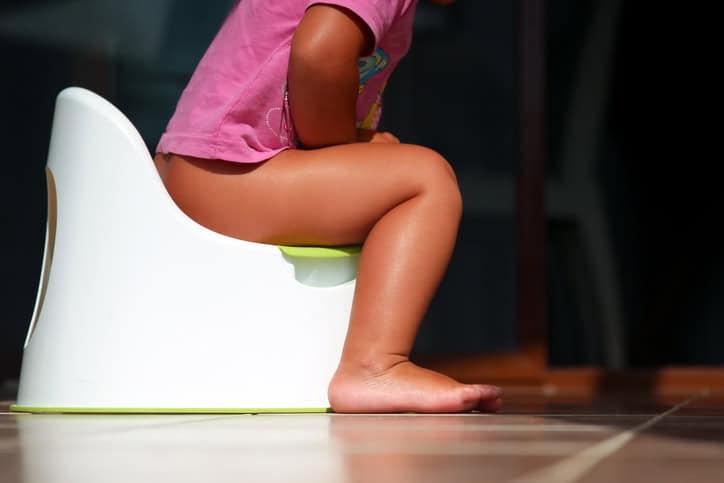When your baby was born, you were concerned about bowel movements, probably for the first few weeks. As you settled into a routine, you gave less and less thought to stool, as it seemed everything was moving along just as it should. Now, your baby is a toddler and is suddenly hiding when they need to have a bowel movement.
“This is perfectly natural behavior,” says Dr. Hassan Alzein at Alzein Pediatrics. “It’s actually a very good sign of your child’s eventual move to potty training. They are emulating adults and associating the need to move their bowels with the need for privacy.” Dr. Alzein notes that this is also the time when bowel movements change, bringing new challenges for kids who want to go in private.
At any given time, about 20% of toddlers are constipated. Your Alzein Pediatrics provider is not surprised. Toddlers’ digestive systems are still developing as parents introduce new textures and types of food. Toddlers are also increasingly in control of their bodies and may exacerbate an unbalanced gut-biome by willfully avoiding the toilet. Research even suggests toddler constipation can be caused by small changes in daily routine. Whatever the reason for constipation, a constipated toddler might become upset when stooling becomes difficult or even painful and so it’s important for parents to, again, be concerned about bowel movements.
When things are running smoothly, the human colon absorbs water from food as it passes through and gets converted to waste stool. Sometimes, the food takes a little longer moving through the colon, which means more water gets absorbed and the stool gets drier, harder and more difficult to pass.
Your Alzein Pediatrics providers generally diagnose constipation in toddlers if they stool less than two times a week. Constipation is more common in boys, and more common in boys with developmental or behavioral concerns. Aside from hard and dry stools, you might also notice odd postures, complaints of stomach cramps or nausea, and eventually pain while having a bowel movement. Constipation can become a compounding problem for your toddler, as hard stools make moving their bowels unpleasant and painful, so they hold the stool in, increasing the drying and hardening process.
If your toddler becomes constipated, consider possible triggers like changes in diet, routine, or medication. In addition to addressing the possible trigger, offering more water and high-fiber foods like prunes, pears, blueberries, and beans can help. Avoid low-fiber foods like dairy, bananas, and processed foods to help alleviate and prevent constipation.
If you’re trying to potty train your toddler and you can’t identify any clear dietary triggers for their constipation, it’s possible your child’s constipation is a function of withholding, known as avoiding using the toilet. Toddlers might withhold because they’re afraid of the toilet and the loud flush. Toddlers might withhold because they’re having too much fun playing. They may be withholding because they want to control their decisions of when and where to move their bowels. Here at Alzein Pediatrics, we generally recommend pausing toilet training when constipation occurs to give the child time to grow comfortable with a toilet routine.
Given how common constipation is in toddlers, it’s important to remember that your toddler understands what’s going on even less than you do. Reassure your child around the toilet, encourage lots of water and high fiber foods, create plenty of distraction-free opportunities to visit the restroom, talk about the signs your body is ready to use a toilet, and use positive reinforcement to develop a healthy toilet routine.
If you are not yet potty training your child, but they have started hiding to stool in their diaper or pants, encourage them to get into the bathroom to move their bowels, perhaps standing behind the open door while you stand on the other side to give them privacy. This way, they begin clearly associating bowel movements with the bathroom, even if they aren’t ready to sit on a potty chair.
Most of the time, changes in your toddler’s diet and an increase in physical activity will ease constipation. However, if your child is not moving their bowels at least twice a week, make an appointment with your Alzein Pediatrics provider. We will want to check for any underlying physical conditions or disorders and treat them promptly, making everyone happier about going to the bathroom.


